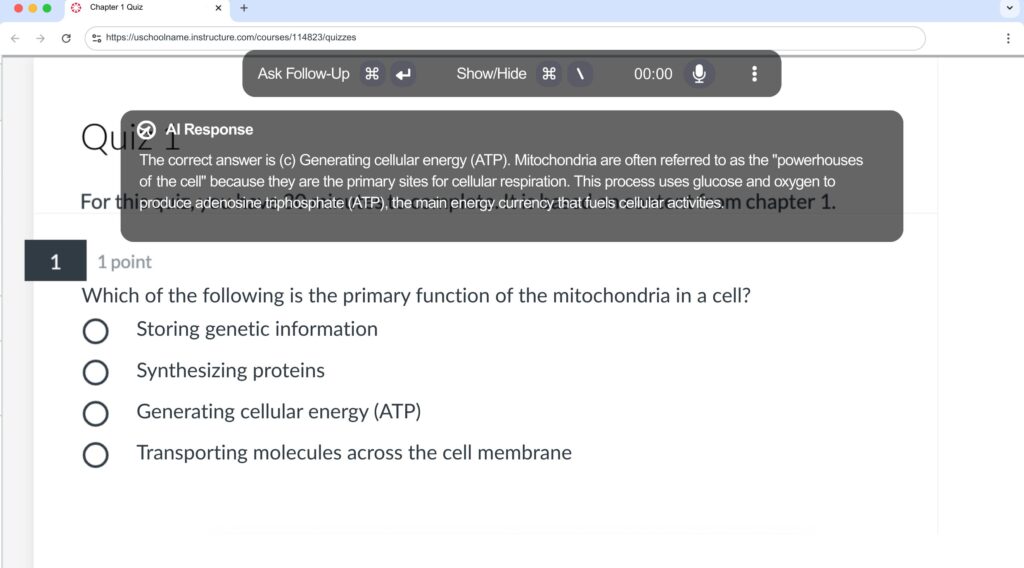Cluely, the AI application built to cheat on everything, as described by its founders, Chungin “Roy” Lee and Neel Shanmugam, has raised major concerns in higher education, professional education, and employers by putting the integrity of exams and interviews at risk. Cluely’s manifesto even attempts to justify using the app for cheating by claiming that if everyone cheats, no one is really cheating. But what is it, and why are so many concerned?
What is Cluely AI?
Cluely AI is an application that sits on screen as a transparent overlay that feeds users real-time responses based on what it sees on screen and hears through audio during exams and interviews. It can answer questions on the screen during an exam, or it can hear what the interviewer asks and write responses quickly enough for the user to read aloud and sound natural.
In other words, Cluely is basically an invisible AI assistant that makes it really easy to cheat and it’s really difficult to detect.

Why is Cluely AI so difficult to detect?
Cluely is difficult to detect because it hides activities by:
- Bypassing keyboard logging with hidden global shortcuts
- Masking tab activity with a transparent overlay that tricks the system into thinking the test taker never leaves the exam tab
- Staying invisible during screen sharing
Cluely intentionally hides these activities because it makes it almost undetectable. Almost.
Honorlock proctoring platform blocks Cluely (and all other applications)
Honorlock makes it easy to detect and prevent the use of Cluely. Exam admins simply enable the Honorlock Application to block Cluely (and all other applications) during exams, assignments, interviews, presentations, and any other tasks you can think of.
Admins also have the flexibility to allow specific applications while keeping all others blocked. They can use a simple drop-down menu to allow tools like Microsoft Word for proctored essays or Excel for tasks like building balance sheets or analyzing data.
Simply put, Honorlock makes it easy for admins to block Cluely and all other applications/websites, or allow the ones they want based on their exam goals.
Other remote proctoring tools to secure integrity
In addition to blocking AI like Cluely, Honorlock’s hybrid proctoring solution, which combines AI with live proctoring, offers several tools to detect and prevent the unauthorized use of AI tools, such as ChatGPT, during online exams. Honorlock also provides extensive proctoring tools to protect exam integrity from every angle, such as:
- Detecting cell phones and other devices: AI detects cell phones and other secondary devices like tablets and smartwatches without relying on a proctor to catch them in real time.
- Identifying leaked exam content: Search & DestroyTM automatically searches the internet to identify leaked exam questions and provides a one-click option to send DMCA takedown requests.
- Verifying ID and scanning the room: Before the exam begins, the webcam is used to verify identity and scan the room for unauthorized resources like books, notes, secondary devices, and even other people.
- Monitoring behavior: Honorlock monitors and records test takers’ behavior and desktop activity during assessments, interviews, and other tasks.
- Detecting speech: Listens for keywords and phrases that potentially indicate cheating, such as “Hey Siri,” instead of flagging unimportant sounds like coughing or even a test taker speaking aloud as they work through a problem.
Honorlock integrates with Canvas, Blackboard, Moodle, D2L, Open LMS, Intellum, and Docebo, and provides open APIs for custom integrations. Exam admins also have access to in-depth, filterable reports with time-stamped HD recordings all in one easy to use portal.








